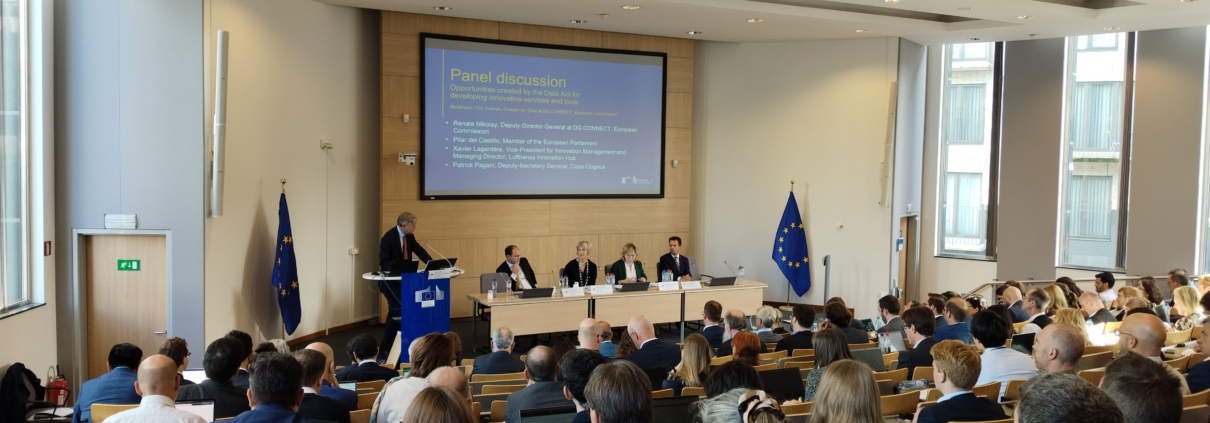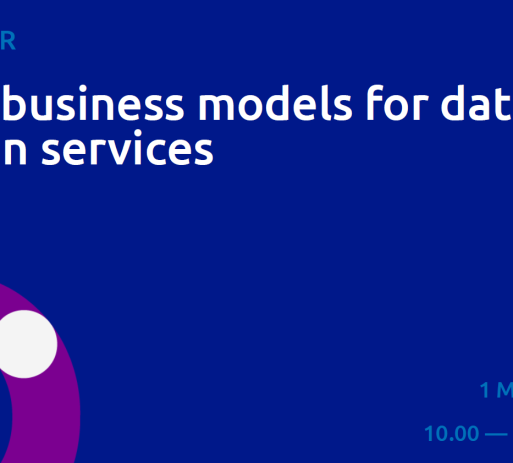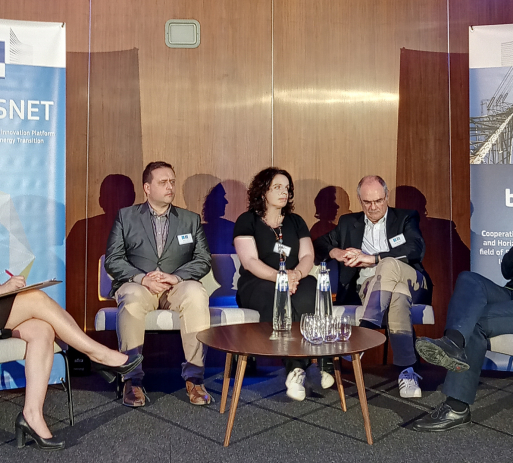Trust, ownership and interoperability in the Data for Innovation Conference
As the Data Act moves closer to implementation, a recent panel discussion at the Data for Innovation Conference in Brussels brought together key figures from across sectors to explore the opportunities and challenges this landmark regulation will bring to Europe’s digital economy. With enforcement on the horizon, Renate Nikolay, Deputy Director-General at DG CONNECT, European Commission, emphasized the crucial task ahead: making the Data Act a reality. While much attention has been given to high-performance computing (HPC) and cloud infrastructure, Nikolay stressed that data itself is the essential ingredient. The challenge lies not only in unlocking its potential but in making it understandable and accessible to all. Europe’s competitiveness, she argued, will pivot on this.
Pilar del Castillo, Member of the European Parliament (MEP), voiced the Parliament’s commitment to closely monitor the Act’s implementation, underscoring the need for a smooth transition. She raised concerns about small and medium enterprises (SMEs), who may find it difficult to navigate the complexities of the Data Act without significant support. Del Castillo called for the digitisation of value chains across sectors, alongside the development of robust physical infrastructure, from IoT networks to innovative digital systems.
Unlocking Innovation Through Data
Xavier Lagardère, Vice-President for Innovation Management and Managing Director at Lufthansa Innovation Hub, offered an insightful look into how data is already transforming industries. At Lufthansa, a sophisticated platform allows the airline to track passenger flows in real-time, anticipate trends, and allocate resources more efficiently—such as increasing staff during peak baggage periods. This, Lagardère pointed out, is just one example of how data can drive operational efficiency and cut costs. The broader implications for other sectors are enormous, with data ready to unlock untapped potential across industries.
In the agricultural sector, Patrick Pagani, Deputy-Secretary General of Copa-Cogeca, acknowledged that while the industry is generally well-prepared, individual farmers often struggle to leverage data effectively. Farmers working within cooperatives, however, are better positioned to exploit its benefits. Pagani highlighted trust, ownership, and interoperability as essential pillars for successfully integrating data into the agricultural landscape, ensuring that everyone from large-scale producers to small farmers can obtain the rewards.
Looking forward, the panel discussed the steps businesses must take to be ready for the Act’s implementation. Lagardère emphasised the need for swift regulatory adaptation, while del Castillo focused on dismantling barriers within Europe’s single digital market, home to more than 440 million consumers. Nikolay called for the creation of a “data club” among EU member states to ensure collective progress in the next 12 months. Pagani reiterated this, advocating for sector-specific collaborations—“sectoral clubs”—to foster coherence at both EU and national levels.
Navigating Challenges and Securing the Future
The conversation then turned to the long-term position for the Data Act. Lagardère stressed the importance of investing in key areas such as artificial intelligence (AI), digital infrastructure, and foundational technologies like semiconductors and chips. While certain aspects of the regulation can be addressed now, del Castillo observed that the Act’s application would inevitably bring forth fresh insights, potentially triggering future adjustments to the regulation. Nikolay reaffirmed that the Data Act is designed to support innovation without imposing unnecessary administrative burdens. She proposed the concept of a “business wallet,” a simplified system through which companies can manage the data they share, drawing a parallel with the accessibility of digital wallets that consumers enjoy.
However, challenges remain. Del Castillo highlighted that some countries have failed to implement the Digital Services Act due to inadequate legal frameworks, rising concern that similar issues could arise with the Data Act. A representative from Siemens in the audience added that regulatory inconsistencies, such as those between the GDPR and the Data Act, might present further complications. Del Castillo, however, reassured the audience that the Data Act had been carefully crafted to complement the GDPR, not conflict with it. Nikolay added that the Act is intended to modernise outdated structures while sustaining the fundamental principles of data protection.
A representative from a German business association among the attendees raised another point of concern—confusion around the Act’s terminology, with businesses uncertain whether they are users, providers, or sellers, among others. Clearer guidance from local authorities will be critical in addressing these ambiguities. Both del Castillo and Nikolay stressed the need for trusted intermediaries, especially to help SMEs navigate these complexities. Pagani and Nikolay also highlighted the importance of data sovereignty, urging that Europe must manage any vulnerabilities in its value chain to maintain a competitiveness in the global market.
As the discussion drew to a close, the panel agreed on a common vision: clear strategic goals, targeted investments in infrastructure, and sector-wide collaboration will be essential to releasing the full potential of the Data Act. By laying this foundation, Europe can ensure that its digital economy flourishes, driven by innovation and fuelled by data—without being weighed down by administrative obstacles.





